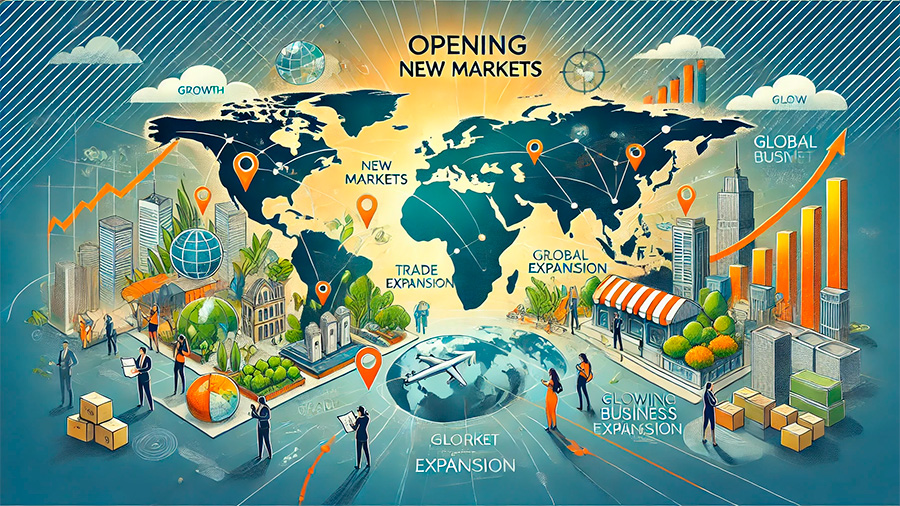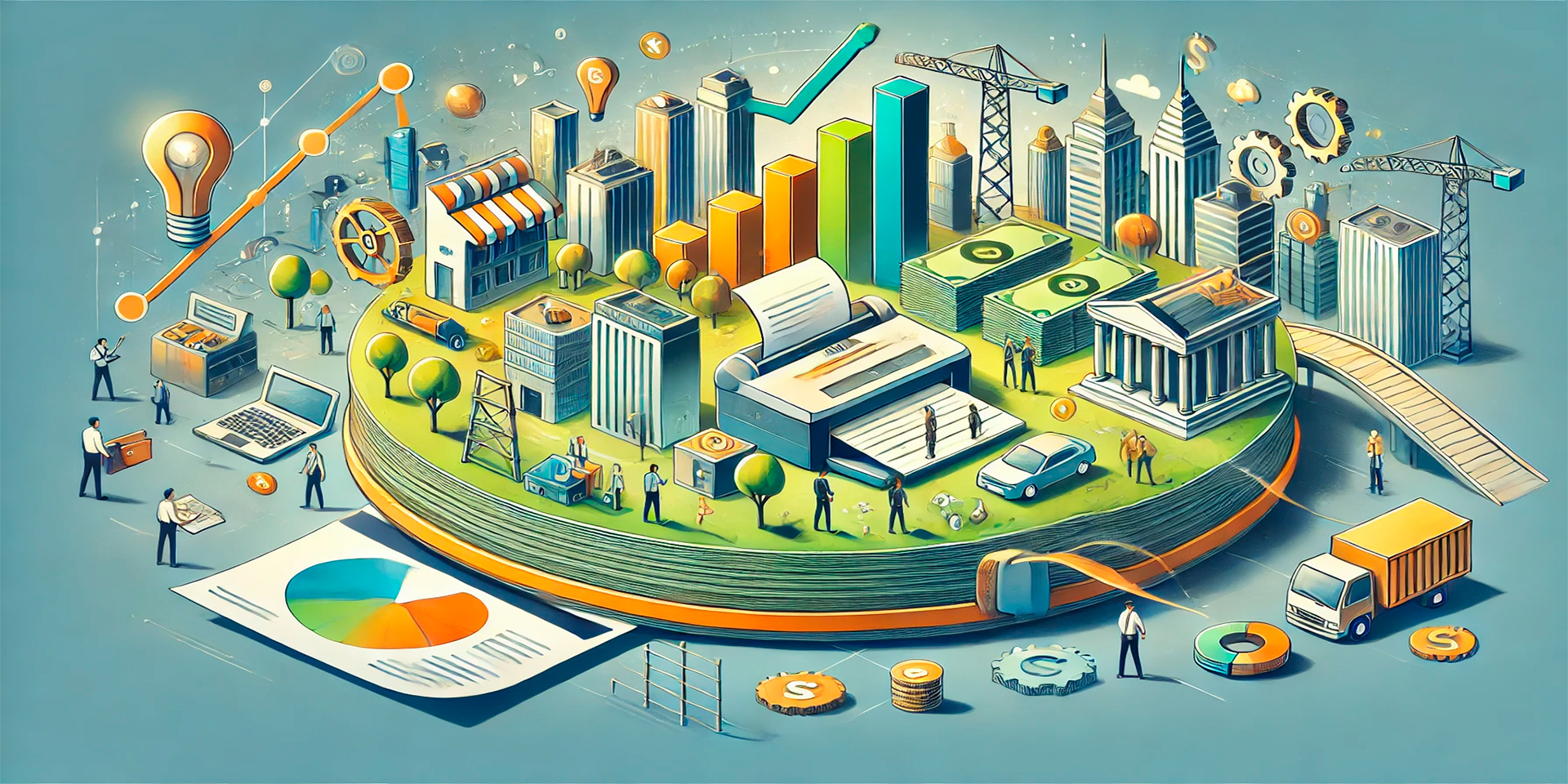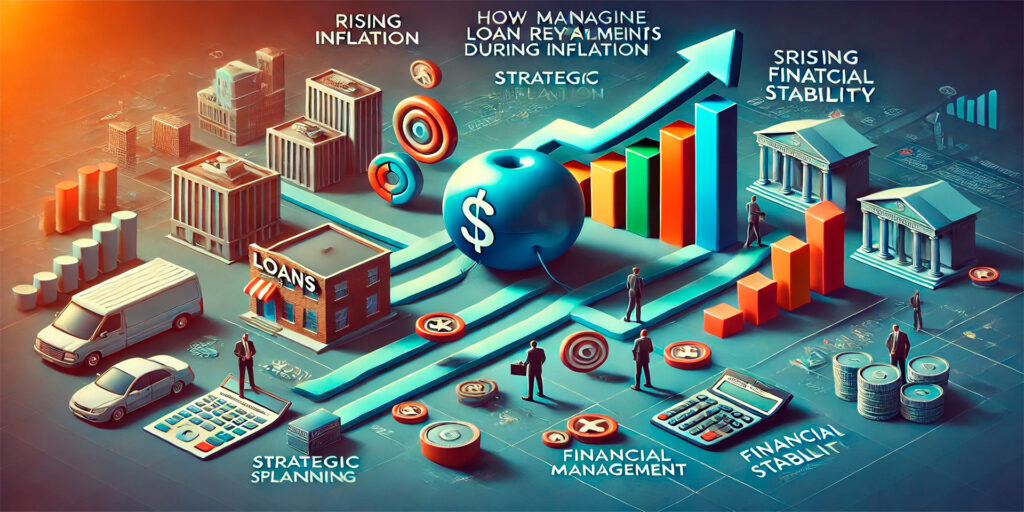Business loans play a critical role in driving economic growth by providing companies with the capital they need to expand, innovate, and create jobs. Whether through small business loans or larger financing solutions for corporations, access to credit enables businesses to invest in new projects, enter new markets, and fuel long-term growth. During times of economic recovery, loans are especially vital as they inject liquidity into the marketplace, allowing companies to thrive even in challenging conditions.
This article explores how business loans stimulate economic growth and why they are an essential tool for both businesses and economies in recovery and expansion phases.
Fueling Business Expansion and Job Creation
One of the most direct ways business loans contribute to economic growth is by facilitating expansion. With the necessary financing in place, businesses can invest in new facilities, hire more employees, and increase production capacity. For small and medium-sized enterprises (SMEs), loans often represent the only way to fund growth initiatives, as many smaller companies lack the capital to scale without external financing.
When businesses expand, they not only increase their output but also create more jobs, which in turn stimulates consumer spending. As employees have more disposable income, they spend on goods and services, creating a positive cycle of economic activity. This ripple effect means that loans taken by businesses have a broader impact, benefiting both local communities and the overall economy.
For example, a manufacturing company that secures a loan to open a new production facility can employ more workers, leading to increased demand for housing, retail, and other services in the area. The business growth supported by loans creates economic vitality, with the potential to uplift entire regions.

Encouraging Innovation and Technological Advancement
Access to business loans allows companies to invest in research and development (R&D) and adopt new technologies, both of which are key drivers of economic growth. Innovation leads to the creation of new products and services, improving efficiency and productivity across industries. Loans provide the financial resources necessary for businesses to take these risks, accelerating technological advancements that benefit not just individual companies but entire sectors.
In industries like healthcare, technology, and energy, where innovation is critical, business loans can fund the development of cutting-edge solutions. For instance, a tech startup may use a business loan to fund software development, while a renewable energy company could invest in advanced technologies to improve energy efficiency. These innovations lead to increased productivity and open new markets, contributing to broader economic growth.
When companies use loans to innovate, they also increase their competitiveness on a global scale, ensuring that they remain viable in rapidly evolving markets. This competitiveness further stimulates economic activity as companies expand into new markets and attract investment.
Supporting Economic Recovery in Challenging Times
During periods of economic downturn or recovery, business loans play an especially important role in stabilizing economies. When consumer demand is low and businesses face financial challenges, access to credit can provide the necessary support to keep operations running. Loans help companies maintain cash flow, pay employees, and continue serving customers during tough economic times.
In the aftermath of global economic crises, governments often introduce loan programs aimed at supporting struggling businesses. These loans offer more favorable terms, such as lower interest rates or deferred payment schedules, allowing businesses to weather the storm and eventually return to growth. By providing immediate capital, business loans prevent closures, safeguard jobs, and allow companies to continue contributing to the economy.
For example, during the COVID-19 pandemic, many governments worldwide implemented small business loan programs to help companies survive lockdowns and reduced consumer spending. These loans allowed businesses to remain operational, preventing further economic decline and setting the stage for a more robust recovery.

Opening New Markets and Global Expansion
Business loans also support companies looking to expand internationally, a critical aspect of stimulating broader economic growth. International expansion often requires significant capital for marketing, logistics, and the establishment of new offices or production facilities. Loans give businesses the financial means to explore global markets, diversify their revenue streams, and strengthen their competitive position.
By entering new markets, businesses not only grow their customer base but also contribute to international trade, which boosts the global economy. As businesses thrive abroad, they increase the demand for domestic goods and services, creating a positive feedback loop that drives economic growth in both their home country and international markets.
Moreover, when businesses succeed in global markets, they create opportunities for partnerships and investments that can further fuel economic expansion. Loans that support international growth enable businesses to tap into these opportunities, fostering economic development on a larger scale.
Strengthening Local Economies
At a local level, business loans have a profound impact on communities. Loans enable small businesses to invest in local infrastructure, create jobs, and support other local enterprises by sourcing goods and services from nearby suppliers. This localized economic activity keeps money circulating within the community, strengthening local economies and fostering a sense of economic resilience.
For instance, a loan to a local construction company might allow the business to take on larger projects, creating jobs for construction workers, electricians, and plumbers in the community. The construction company may also purchase materials from local suppliers, further boosting the local economy. This type of economic growth is critical for rural areas and underserved communities that rely heavily on small businesses for employment and economic stability.
Conclusion
Business loans are essential drivers of economic growth, providing the capital businesses need to expand, innovate, and create jobs. By supporting businesses in both good times and bad, loans stimulate economic activity, fuel technological advancements, and open new markets. As businesses grow and thrive with access to credit, they contribute to the broader economy, creating a positive cycle of growth and development that benefits communities and industries alike.







